S
Shruti Dasgupta
Guest
The Leftist and Liberal media powerhouses have been busy this week. They have made several arguments regarding the implementation of the Uniform Civil Code. The opposers of UCC have made several tall unverified claims in protest. Since Muslims are the second major community of India and they have a very strong sense of community; opposers are mainly spreading misinformation to use this community’s influence as a stumbling block. Thus, some Islamic publications project UCC as the effort of a Hindu government to dilute Muslim Identity.
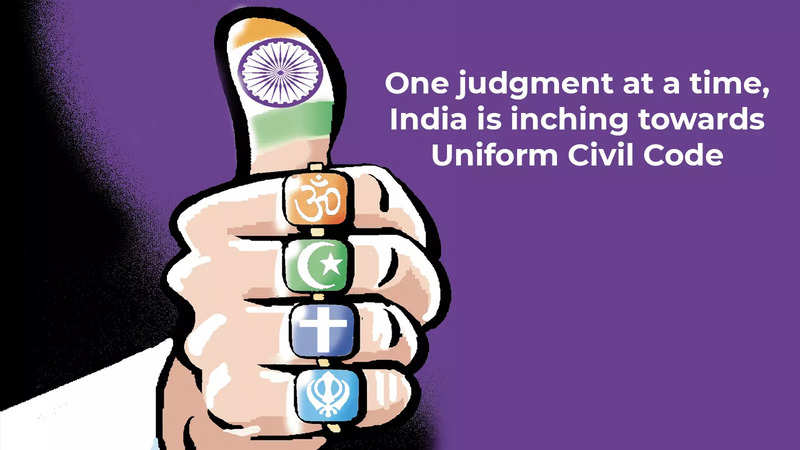
PC Times of India
They propagate various myths and lie under the umbrella of ‘Opposition to UCC’. These myths misguide public opinion. Moreover, they widen the communal divide within India. Therefore, the 5 major myths must be addressed to make way for an India united under the same law.

PC Denver Catholic
Opposers are spreading the fake narrative of the violation of religious freedom. The truth is that all communities will be allowed to continue their rituals as desired. This freedom will not be infringed in any form. UCC only mandates government procedures to be duly followed to recognize marriages.
All religious practices in marriages, death, birth, and communal festivals will continue to exist. The ‘Right to Freedom of Religion’ shall not be violated by the UCC. However, polygamy and polyandry shall become criminal. Polyandry, the practice of having more than 1 husband, is a taboo in all communities of India. However, polygamy is only allowed in Muslim Personal Law. Thus, the criminalization of polygamy only affects the Muslim community. However, the thriving Muslim population does not need the protection of polygamy to prosper. Therefore, this does not adversely affect Indian Muslims
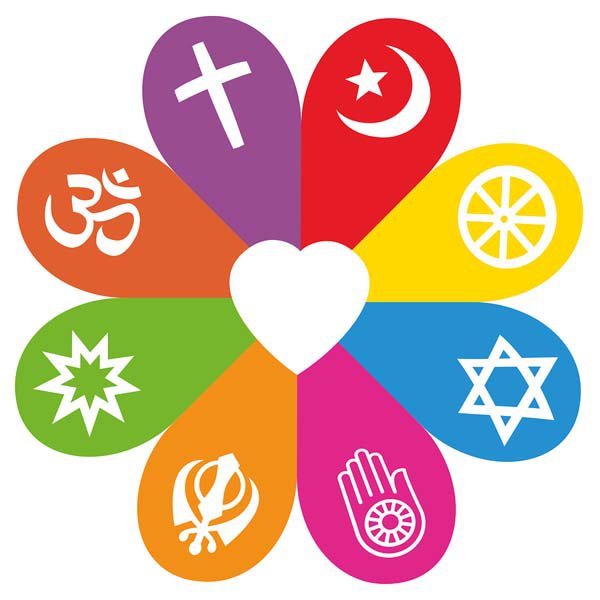
PC The New Social Worker
The UCC does not favor any religion. It is a secular code of laws for all citizens of India irrespective of religion, caste, or creed. No religion is favored in the UCC drafts. It binds all religions to law. It makes marriage registration, death registration, birth registration, and divorce registration compulsory. However, it does not impose a Hindu identity on all Indians. The rituals and ceremonies can be chosen as desired.
The UCC does not ban all religious customs. Hindus cremate their dead; however, UCC does not ban other religious practices. Burials in Christianity and Islam, Dokhma for Parsis, etc. shall be permitted by the law. Hindus do not circumcise their male children; however, this religious practice will be permitted among Muslims, Jews, and other communities. Hinduism does not have a concept of divorce; however, married couples of all religions will be allowed to approach the court of law for a divorce. Thus, UCC is not an instrument to impose Hinduism
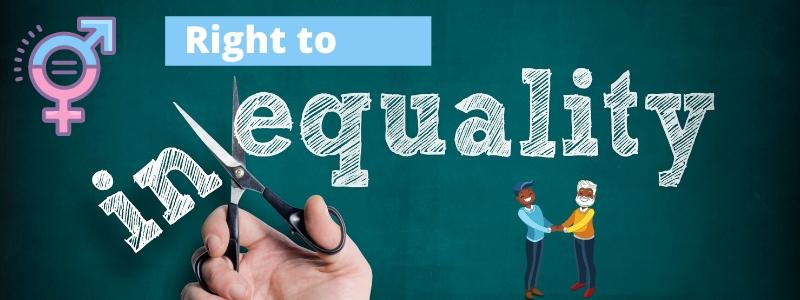
PC Unoreads
Some people believe that UCC is an anti-minority concept. Contrarily, UCC brings all citizens of India on the same platform in the eyes of the law. It does impose Hindi, Hinduism, or any other concept on others. UCC does not oppose Islam, Christianity, Judaism, etc. It only makes the laws of India applicable to all its citizens equally. It prevents political parties from praticising minority-appeasement politics.
UCC protects the “Right to Equality”. It demolishes religious discrimination in matters related to inheritance, divorce, and marital status. UCC promotes gender equality. It opposes orthodox patriarchal concepts, partly dismantles misogyny in religions, and protects the weaker sections of society. Thus, in a way, UCC can be viewed as the “Champion of the Marginalized Section of Indian Society”.
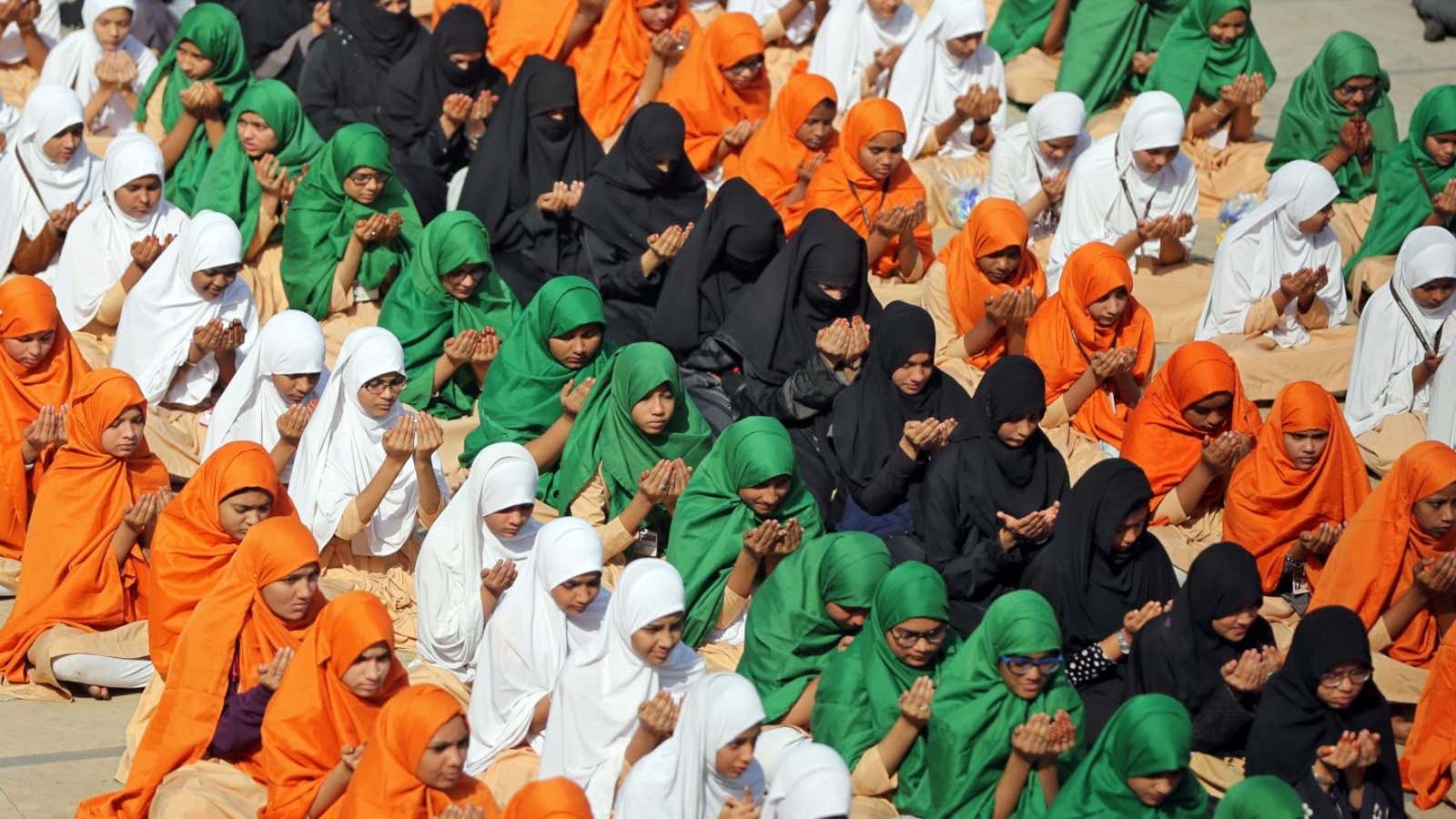
PC Quartz
This is another misconception about UCC. Opposers state that Hindus intended to supersede or abolish Sharia law. However, UCC aims to harmonize personal laws across different religious communities, including Muslims. Those Muslims who choose to live their lives in complete accordance with Sharia concepts can do so within the boundary of Indian Law. They can choose to divide their property as per Sharia by creating a living will. They can choose to divorce their wives by approaching the court. Devout Muslims can choose not to adopt as adopted children are not recognized in Islam.
UCC ensure that all Indians enjoy their Fundamental Rights while fulfilling their Fundamental Duties. UCC is demonized as a law that will end Islam in India; however, this is a fake propaganda by the Liberals. Opposers want to ensure that women and children are denied their basic rights as citizens of India. They want Indians to disassociate from their national identity. Additionally, they encourage communal identity before national unity. Thus, they have projected UCC as anti-Islam.

PC Insight IAS
Critics argue that implementing UCC is impractical due to the religious and cultural diversity in India. However, countries like Turkey, Tunisia, and France are examples of diverse populations that have successfully accepted the Uniform Civil Code. These nations demonstrate personal freedoms should not oppress equal rights and justice for all.
Article 44 of the Constitution of India states: “The State shall endeavor to secure for the citizens a uniform civil code throughout the territory of India.”
This article encourages the Indian government to strive toward implementing a uniform civil code. The objective of Article 44 is to promote social harmony, equality, and justice by eliminating disparities and inconsistencies arising from diverse personal laws based on religious practices. While Article 44 provides a directive for the state, its implementation requires the legislation of UCC. Moreover, it requires comprehensive reforms in the legal system to ensure complete implementation of the intent of the Uniform Civil Code.
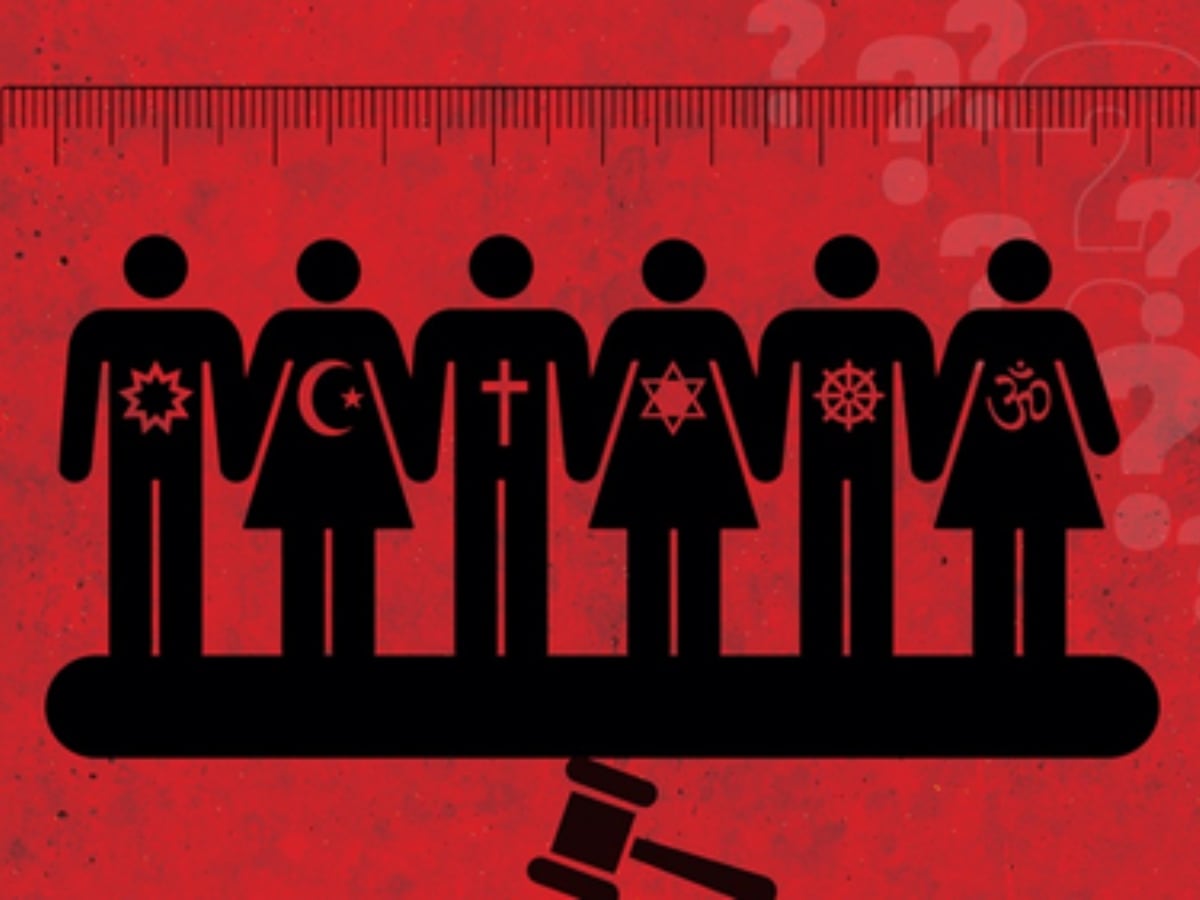
PC News 18
The above myths showcase the rainbow of accusations Liberals, Leftists, and Opposers use to create obstacles in the progress of Indian Society. They attempt to keep India divided by communal biases. They want the women and children to remain stuck in 17th-century personal laws. Their aim is not a united India, but a disturbed and divided India. Their goal should have been clear when they raised the slogan of “Bharat Tere Tukde Honge”. They want to raise personal fiefdoms of influence. They spread misinformation to encourage a false sense of insecurity in communities in India.
They want gender equality to enter Hindu temples, but they support the oppression of women under religious personal laws. They want to encourage discrimination in India, but they create hurdles in the path of a law that promotes equality irrespective of gender or religion.
All Indians must awaken to realize the true intent behind the fake propaganda behind UCC opposition. The real enemies of India are not those who implement UCC but those who oppose it. Indians must identify their agenda and fake information. Otherwise, India shall burn in another protest based on fake inputs and misinformation.
The post Debunking 5 Major Myths For Opposing Uniform Civil Code appeared first on The Jaipur Dialogues.
Continue reading...

PC Times of India
They propagate various myths and lie under the umbrella of ‘Opposition to UCC’. These myths misguide public opinion. Moreover, they widen the communal divide within India. Therefore, the 5 major myths must be addressed to make way for an India united under the same law.
Myth 1 : UCC Violates Religious Freedom

PC Denver Catholic
Opposers are spreading the fake narrative of the violation of religious freedom. The truth is that all communities will be allowed to continue their rituals as desired. This freedom will not be infringed in any form. UCC only mandates government procedures to be duly followed to recognize marriages.
All religious practices in marriages, death, birth, and communal festivals will continue to exist. The ‘Right to Freedom of Religion’ shall not be violated by the UCC. However, polygamy and polyandry shall become criminal. Polyandry, the practice of having more than 1 husband, is a taboo in all communities of India. However, polygamy is only allowed in Muslim Personal Law. Thus, the criminalization of polygamy only affects the Muslim community. However, the thriving Muslim population does not need the protection of polygamy to prosper. Therefore, this does not adversely affect Indian Muslims
Myth 2 : UCC is an Imposition of Hinduism

PC The New Social Worker
The UCC does not favor any religion. It is a secular code of laws for all citizens of India irrespective of religion, caste, or creed. No religion is favored in the UCC drafts. It binds all religions to law. It makes marriage registration, death registration, birth registration, and divorce registration compulsory. However, it does not impose a Hindu identity on all Indians. The rituals and ceremonies can be chosen as desired.
The UCC does not ban all religious customs. Hindus cremate their dead; however, UCC does not ban other religious practices. Burials in Christianity and Islam, Dokhma for Parsis, etc. shall be permitted by the law. Hindus do not circumcise their male children; however, this religious practice will be permitted among Muslims, Jews, and other communities. Hinduism does not have a concept of divorce; however, married couples of all religions will be allowed to approach the court of law for a divorce. Thus, UCC is not an instrument to impose Hinduism
Myth 3 : UCC is Anti-Minority

PC Unoreads
Some people believe that UCC is an anti-minority concept. Contrarily, UCC brings all citizens of India on the same platform in the eyes of the law. It does impose Hindi, Hinduism, or any other concept on others. UCC does not oppose Islam, Christianity, Judaism, etc. It only makes the laws of India applicable to all its citizens equally. It prevents political parties from praticising minority-appeasement politics.
UCC protects the “Right to Equality”. It demolishes religious discrimination in matters related to inheritance, divorce, and marital status. UCC promotes gender equality. It opposes orthodox patriarchal concepts, partly dismantles misogyny in religions, and protects the weaker sections of society. Thus, in a way, UCC can be viewed as the “Champion of the Marginalized Section of Indian Society”.
Myth 4 : UCC is against Sharia law

PC Quartz
This is another misconception about UCC. Opposers state that Hindus intended to supersede or abolish Sharia law. However, UCC aims to harmonize personal laws across different religious communities, including Muslims. Those Muslims who choose to live their lives in complete accordance with Sharia concepts can do so within the boundary of Indian Law. They can choose to divide their property as per Sharia by creating a living will. They can choose to divorce their wives by approaching the court. Devout Muslims can choose not to adopt as adopted children are not recognized in Islam.
UCC ensure that all Indians enjoy their Fundamental Rights while fulfilling their Fundamental Duties. UCC is demonized as a law that will end Islam in India; however, this is a fake propaganda by the Liberals. Opposers want to ensure that women and children are denied their basic rights as citizens of India. They want Indians to disassociate from their national identity. Additionally, they encourage communal identity before national unity. Thus, they have projected UCC as anti-Islam.
Myth 5 : UCC is Impractical and Unnecessary

PC Insight IAS
Critics argue that implementing UCC is impractical due to the religious and cultural diversity in India. However, countries like Turkey, Tunisia, and France are examples of diverse populations that have successfully accepted the Uniform Civil Code. These nations demonstrate personal freedoms should not oppress equal rights and justice for all.
Article 44 of the Constitution of India states: “The State shall endeavor to secure for the citizens a uniform civil code throughout the territory of India.”
This article encourages the Indian government to strive toward implementing a uniform civil code. The objective of Article 44 is to promote social harmony, equality, and justice by eliminating disparities and inconsistencies arising from diverse personal laws based on religious practices. While Article 44 provides a directive for the state, its implementation requires the legislation of UCC. Moreover, it requires comprehensive reforms in the legal system to ensure complete implementation of the intent of the Uniform Civil Code.
Conclusion

PC News 18
The above myths showcase the rainbow of accusations Liberals, Leftists, and Opposers use to create obstacles in the progress of Indian Society. They attempt to keep India divided by communal biases. They want the women and children to remain stuck in 17th-century personal laws. Their aim is not a united India, but a disturbed and divided India. Their goal should have been clear when they raised the slogan of “Bharat Tere Tukde Honge”. They want to raise personal fiefdoms of influence. They spread misinformation to encourage a false sense of insecurity in communities in India.
The ‘Progressive Elements’ and ‘Peacefuls’ want India to be a secular nation, but they refuse to accept the secular UCC.
They want gender equality to enter Hindu temples, but they support the oppression of women under religious personal laws. They want to encourage discrimination in India, but they create hurdles in the path of a law that promotes equality irrespective of gender or religion.
All Indians must awaken to realize the true intent behind the fake propaganda behind UCC opposition. The real enemies of India are not those who implement UCC but those who oppose it. Indians must identify their agenda and fake information. Otherwise, India shall burn in another protest based on fake inputs and misinformation.
The post Debunking 5 Major Myths For Opposing Uniform Civil Code appeared first on The Jaipur Dialogues.
Continue reading...
